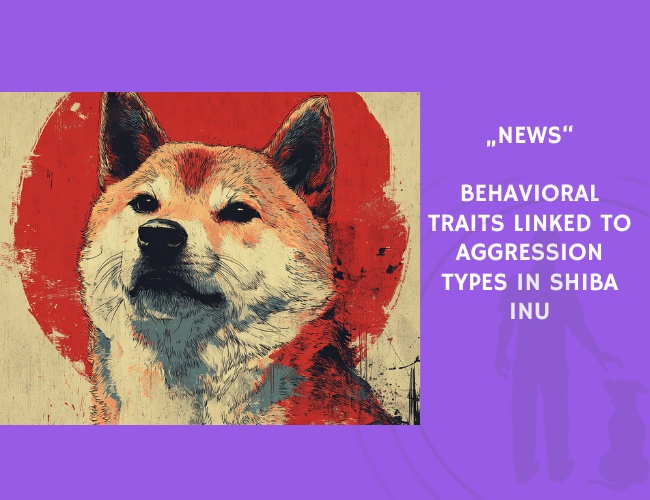A recent study published in the Journal of Veterinary Medical Science explored the relationship between **behavioral traits and four types of aggression**—directed at owners, children, strangers, and other dogs—in the **Shiba Inu** breed. Conducted by **F. Kaneko, S. Arata, Y. Takeuchi, and Y. Mori**, the study involved **400 dog owners** who completed a questionnaire assessing 14 behavioral items.
Using factor analysis, researchers identified four major behavioral traits:
- Sociability with humans
- Reactivity to stimuli
- Chase proneness
- Fear of sounds
The results revealed that **“reactivity to stimuli”** showed a significant positive correlation with all four aggression types, meaning more reactive dogs were more likely to show aggression in various contexts. In contrast, **“sociability with humans”** was significantly negatively correlated with **child- and stranger-directed aggression**, indicating that dogs more comfortable with people were less likely to act aggressively toward unfamiliar individuals.
These findings highlight the need to consider **individual temperament traits** when managing aggression in dogs, particularly in a breed like the Shiba Inu that is often described as independent and strong-willed. Understanding the underlying traits that contribute to aggression could lead to more targeted behavioral interventions and preventive socialization strategies.
Moreover, the study underscores that **canine aggression is not a uniform condition**; rather, it is influenced by a combination of **behavioral predispositions** and **specific social triggers**. Owners and practitioners can benefit from incorporating trait-based assessments into their behavioral evaluation protocols.
Source: F. Kaneko, S. Arata, Y. Takeuchi, Y. Mori. Published in Journal of Veterinary Medical Science, Volume 75, May 30, 2013, pp. 1297–1301.










